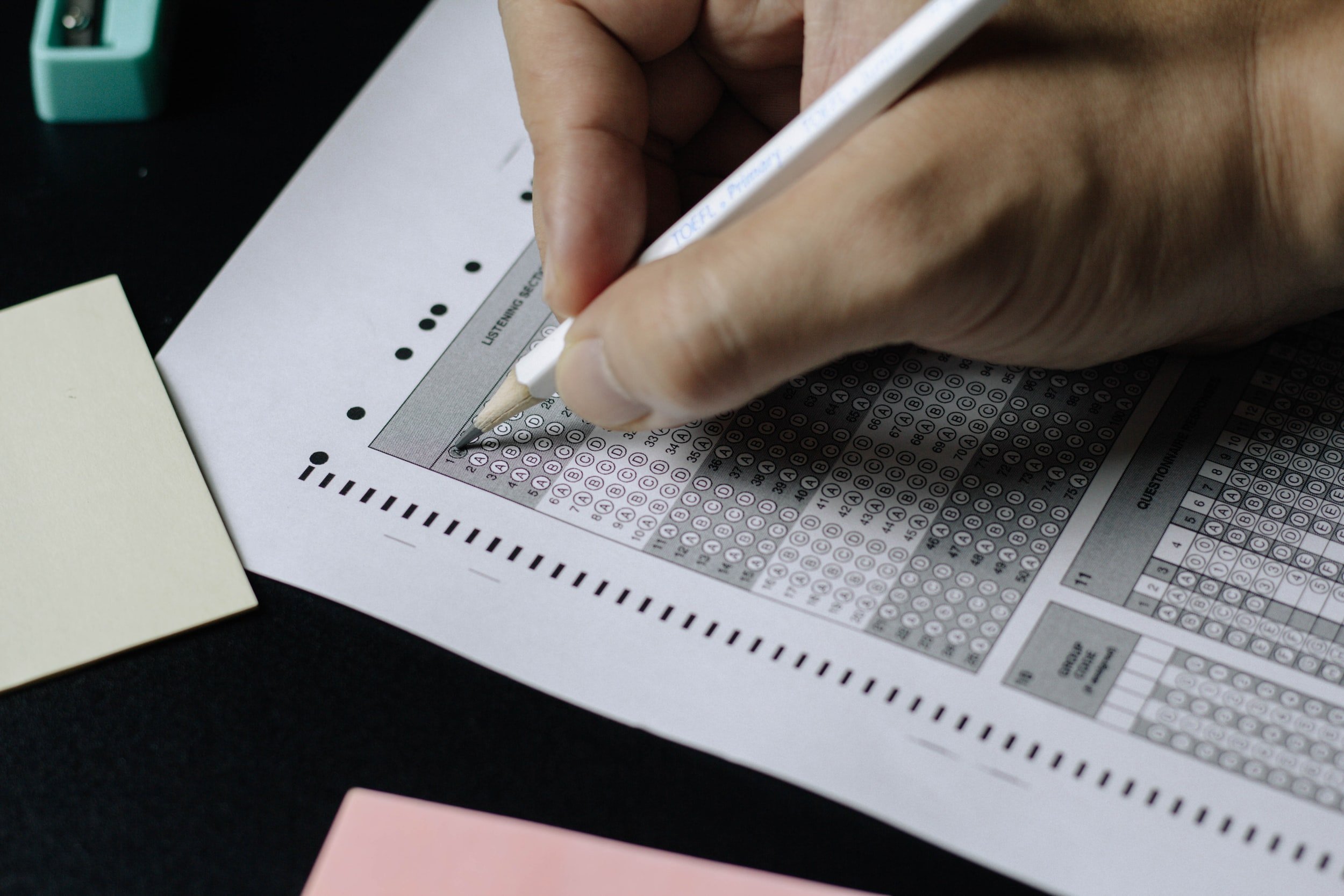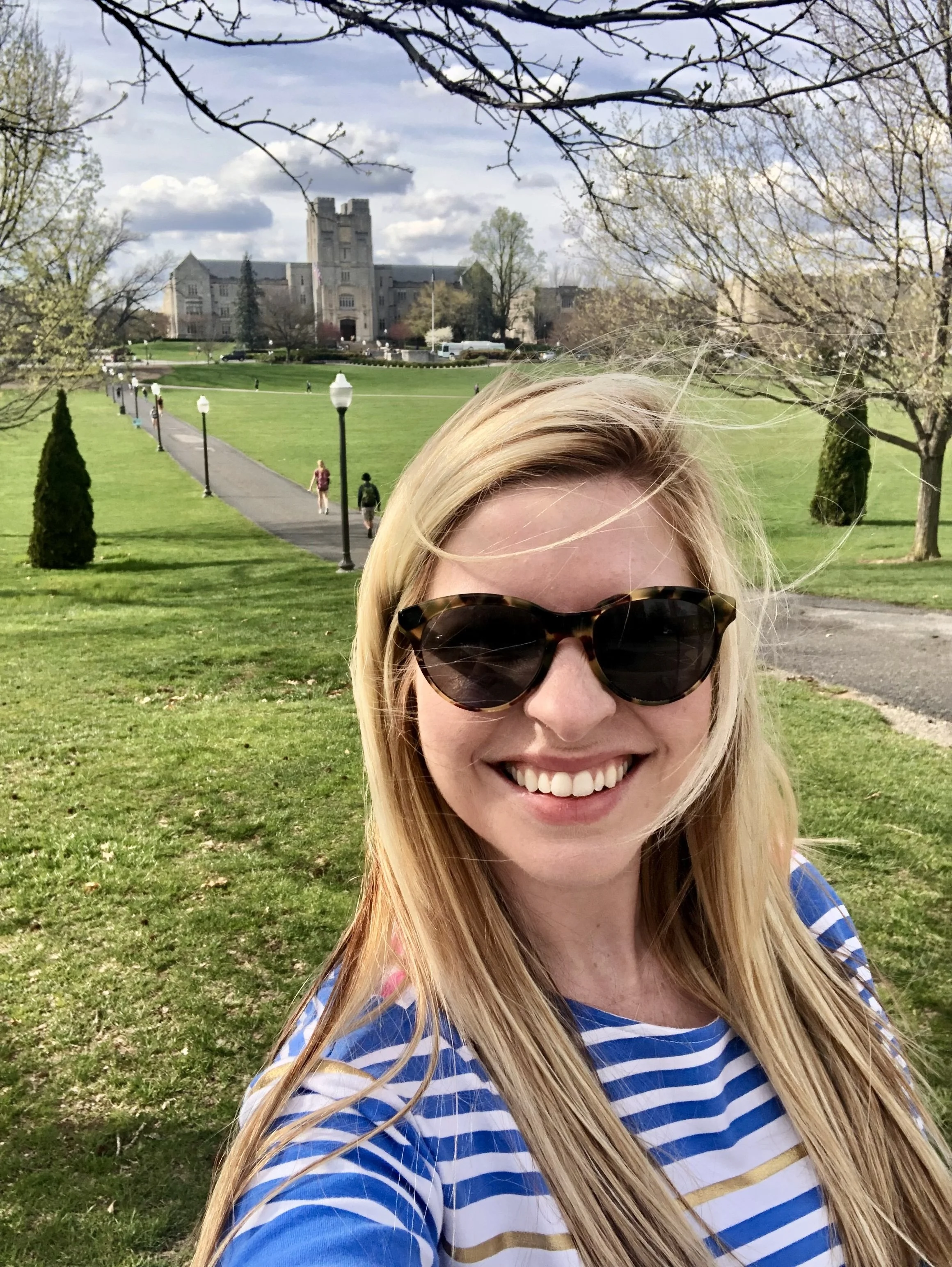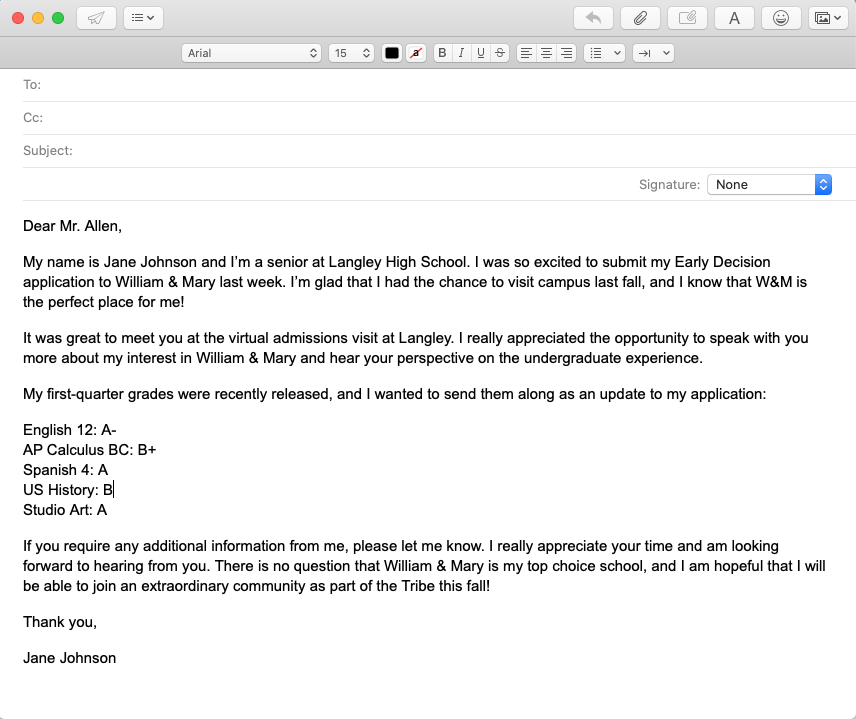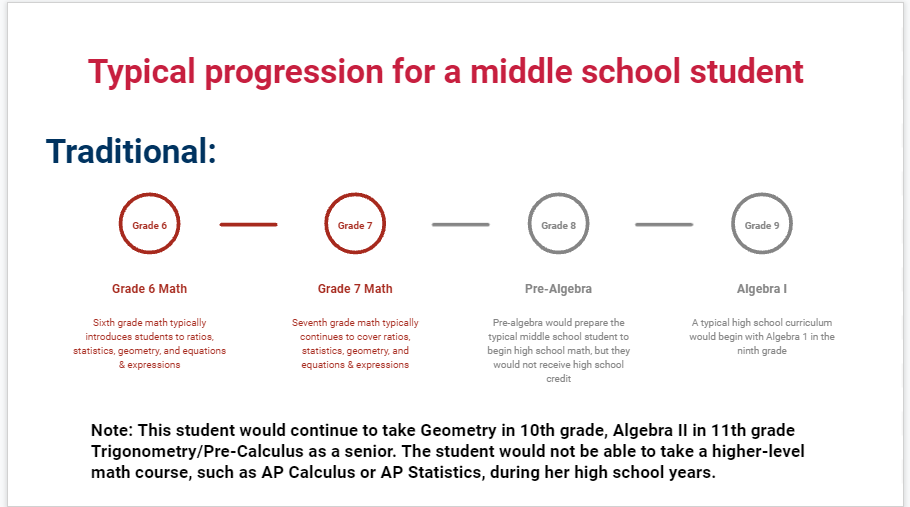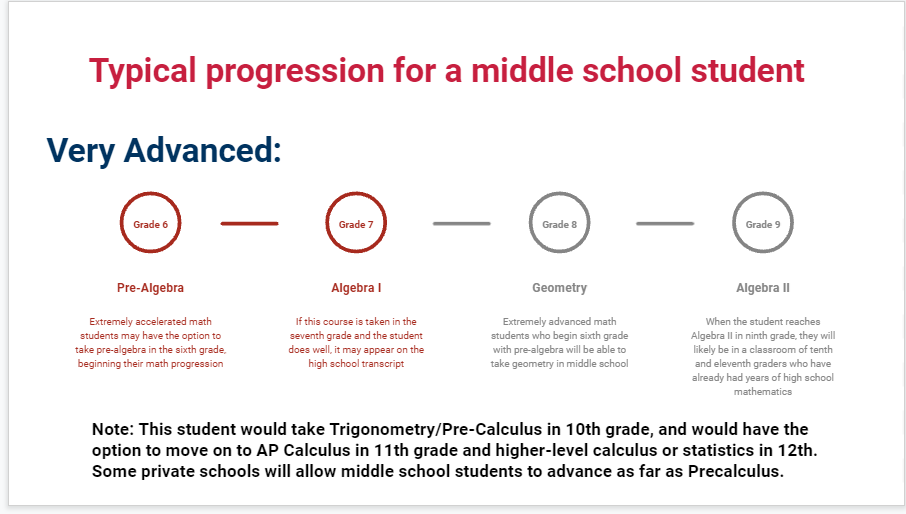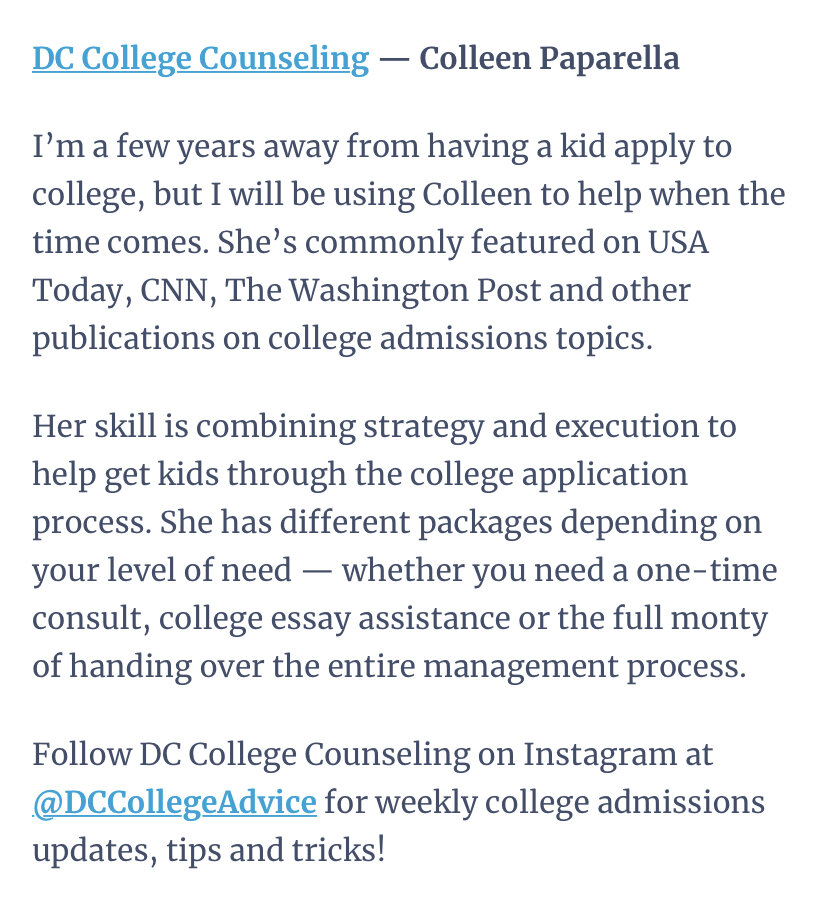We can’t believe we’re already more than halfway through November - hope everyone stayed warm this week!
BIGGEST COLLEGE-RELATED NEWS OF THE WEEK
GEORGETOWN LAW RECEIVES APPLICATION INCREASE
As we’ve mentioned before, we expected the COVID-19 pandemic to lead to more students attending graduate school. And right in our backyard is a great metric - Georgetown Law receives more applications than any other law school in the country. And for Fall 2021, applications went WAY up - 41%! As a result, the admit rate dropped from 21% to just 12% last cycle. This is reflective of an increase in law school applications overall, which were up 26% around the country.
MONTGOMERY COUNTY CHANGES GRADUATION REQUIREMENTS
Soon, students in Montgomery County Public Schools will have to take 0.5 fewer elective and PE credits - bringing the total number of required credits down to 22.5, just half a credit above the state required 22 credits to graduate. PE teachers are opposing the change, arguing that with the mental health implications of COVID-19, physical activity is more important for students than ever.
CDC INVESTIGATES FLU SPREAD AT UNIVERSITY OF MICHIGAN
In just over a month, over 500 cases of the flu have been diagnosed at the University of Michigan - an extreme level of spread. Due to the unusual size of the outbreak, the CDC has stepped in to provide support and evaluate vaccine uptake. The university is urging as many students as possible to get their flu vaccines, especially before traveling home for Thanksgiving break and potentially increasing the spread.
HOWARD PROTESTS COME TO AN END
We’ve been covering the ongoing student protests at Howard University, and now, a month after the student occupation of the Blackburn Center began, the students have reached an agreement with the school administration. The changes promised by the administration include a revision of the school’s sexual assault policy, a review of campus policing, and a food bank for students on campus.
BEST ARTICLES OF THE WEEK
Colleges around the country have been dealing with worsening mental health of students, an issue that the pandemic has brought to the forefront. A Fairfax County student, now a junior at UNC, was an integral part of developing the student response to the two suicides at UNC earlier this year. Ethan Phillips was helping to implement “postvention” strategies, to help avoid “suicide contagion” in the wake of campus suicides. This article covers some of the essential steps of postvention, and how students and schools can support their communities after tragedies.
We mentioned the creation of the University of Austin last week - a new school spearheaded by conservative founders who hope to change the way that colleges admit students and champion free speech on campus. The Washington Post published an op-ed this week that dives into how the school will function. Notable changes include the idea of an entrance exam graded by professors in lieu of a traditional admissions process, which the university’s founders say will increase the role of merit in college admissions.
OFFICE HAPPENINGS
Now that many of the early deadlines have passed, we are keeping our fingers crossed and our eyes on the list of decision release dates for our class of 2022 students. This time last year, UGA and Tulane decisions were rolling out! While we’re not sure we’ll see such early releases this year, students should expect to start receiving these notifications in early to mid-December - so keep an eye on your email!
In the meantime, we’ve enjoyed working with our class of 2023 students to start their college lists and plan their research for the holiday breaks (we’ve had some eager class of 2024 students planning visits as well!). This is a great time to spend looking at colleges, so take advantage of it! If you or your student are feeling overwhelmed by putting together a list and completing research, book a Meet & Greet to hear more about how we can help set you up for success over the holiday break.
Our office will be closed next Thursday - wishing everyone a happy Thanksgiving!



